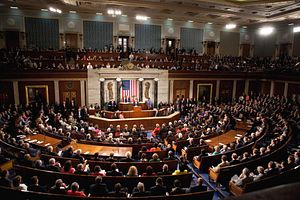A fascinating new poll by the Pew Research Center based off responses from over 10,000 American adults finds that approaches towards American foreign policy, particularly supporting the use of military force versus the use of diplomacy, vary widely with where Americans see themselves on the political spectrum. In general, most conservative Americans, usually identifying with the Republican Party (GOP), see American military power as one of the more important components of American national power. Liberals on the contrary see good diplomacy as more likely to help the United States maintain peace worldwide. The results of this poll are additionally interesting in light of earlier research by Pew that showed American citizens in general have an increasingly isolationist foreign policy outlook (while foreign policy elites naturally continue to push for a more forward U.S. position globally).
The partisan nature of opinions about foreign policy are perhaps unsurprising in the American context. Foreign policy is sidelined in most democracies when it comes to election season, but for the United States, a global hegemon with expensive political and military commitments worldwide, foreign policy is often a major point of contention for U.S. politicians. Particularly, presidential candidates in recent years have been keen to make their views known on U.S. involvement abroad in Iraq, and more recently, Afghanistan. Zack Beauchamp over at Vox takes a look at how the results of this Pew survey help explain the fundamental reasons foreign policy can be split along partisan lines in the United States.
What is a somewhat interesting finding of this Pew survey is that the same Americans that say American military strength is the “best way to ensure peace” (mostly conservatives) are more likely to simultaneously believe that “U.S. involvement makes world problems worse.” For example, 71 percent of what Pew calls “steadfast conservatives,” those Americans who are “staunch critics of government and the social safety net and are very socially conservative,” see U.S. military strength as the best way to ensure peace globally. However, when asked if they think the United States’ involvement in global crises actually makes problems worse, 55 percent of them agreed.
Interestingly, a couple groups who see good diplomacy as the key to ensuring peace also thought the U.S. made problems worse by getting involved in them. These groups include the “young outsiders” (generally younger conservatives who are liberal on social issues) and “hard-pressed skeptics,” (Americans who have been “battered by the struggling economy, and their difficult financial circumstances have left them resentful of both government and business”). However, these groups also self-report to be relatively uninvolved in politics; therefore their opinions probably aren’t going to affect the agendas of the United States’ two major political parties.
The isolationism shown by other surveys is a feature shared by the American layman but not American foreign policy elites. The results of this survey, however, show that militaristic internationalists and diplomatic internationalists are among the two major schools of popular American thinking about foreign policy and each likely will continue to find representation through the two major political parties. The policy reality is, of course, thankfully somewhere in the middle. While it is easy to find evidence of Republican presidents preferring a more heavy-handed militaristic approach to policy and Democrats who are hesitant to use military force, even as a last resort, most American administrations have attempted to find an equilibrium between force and balance.

































